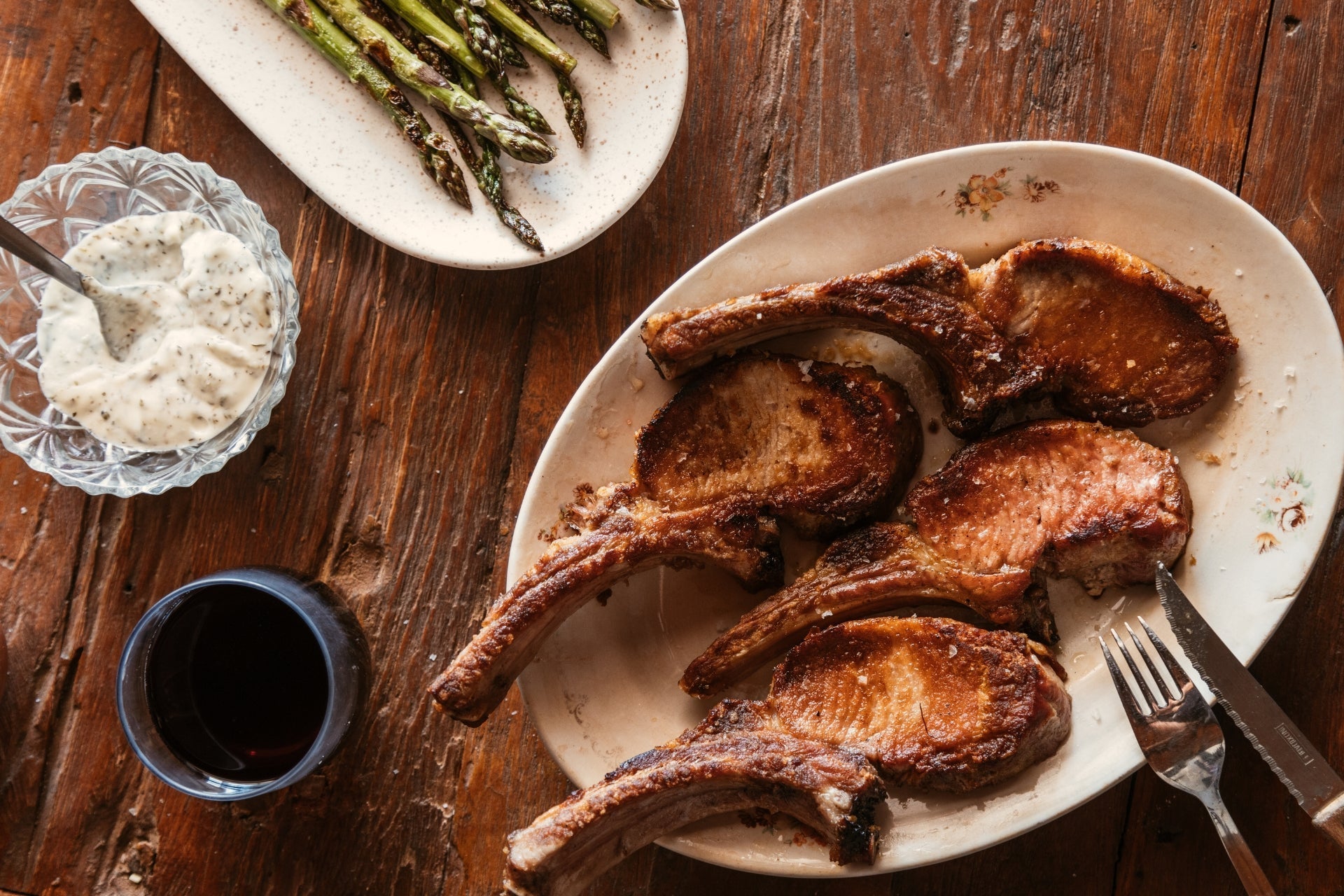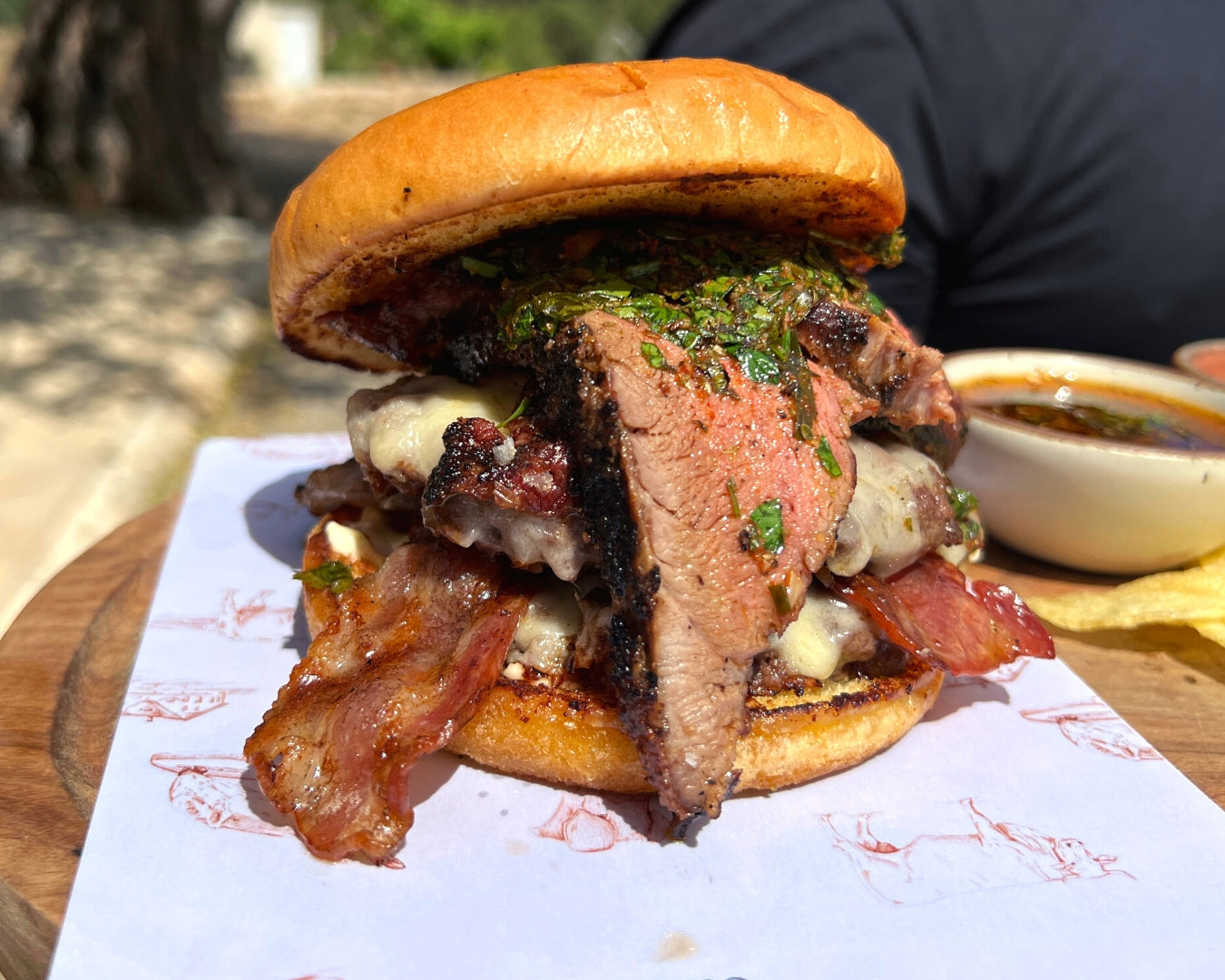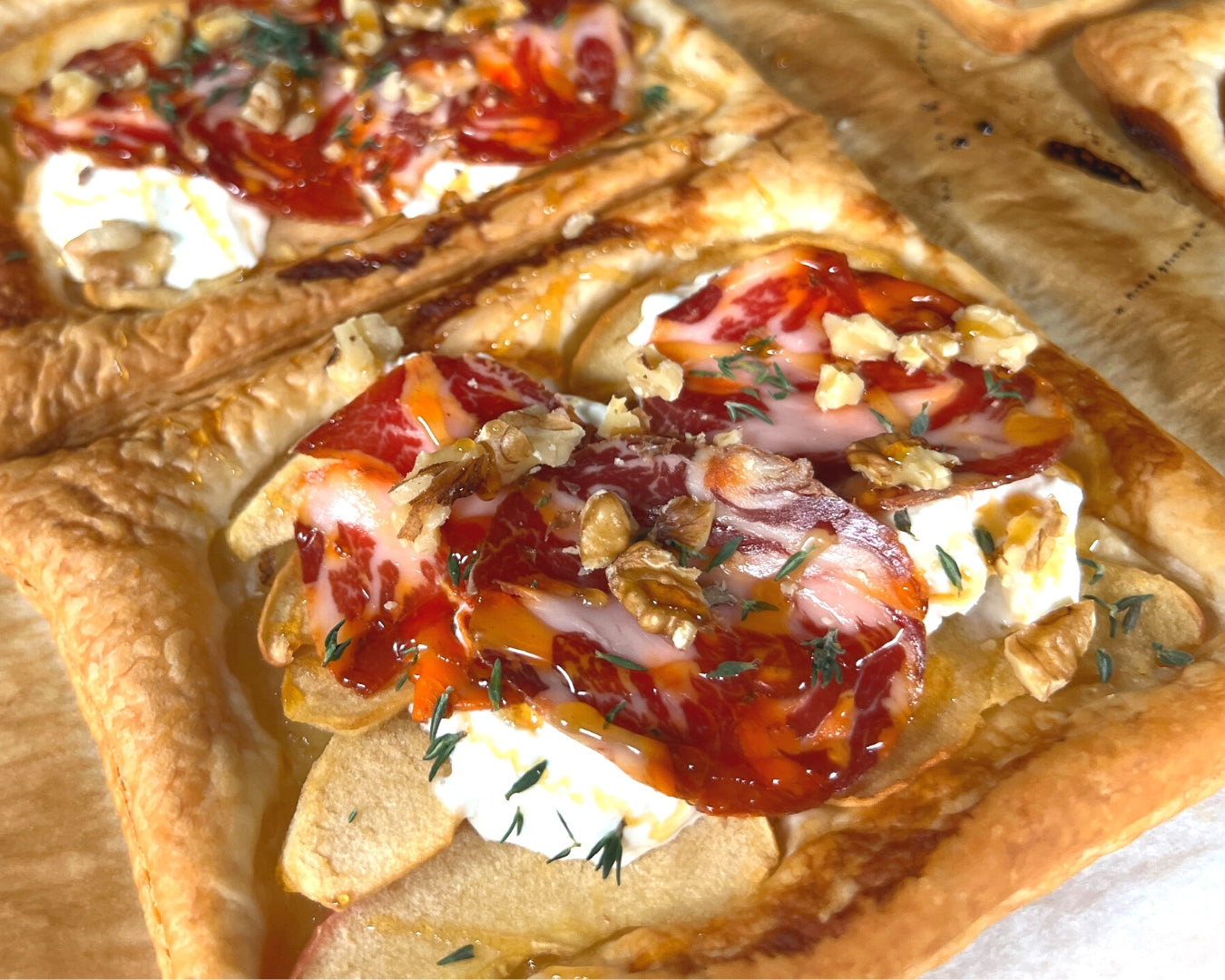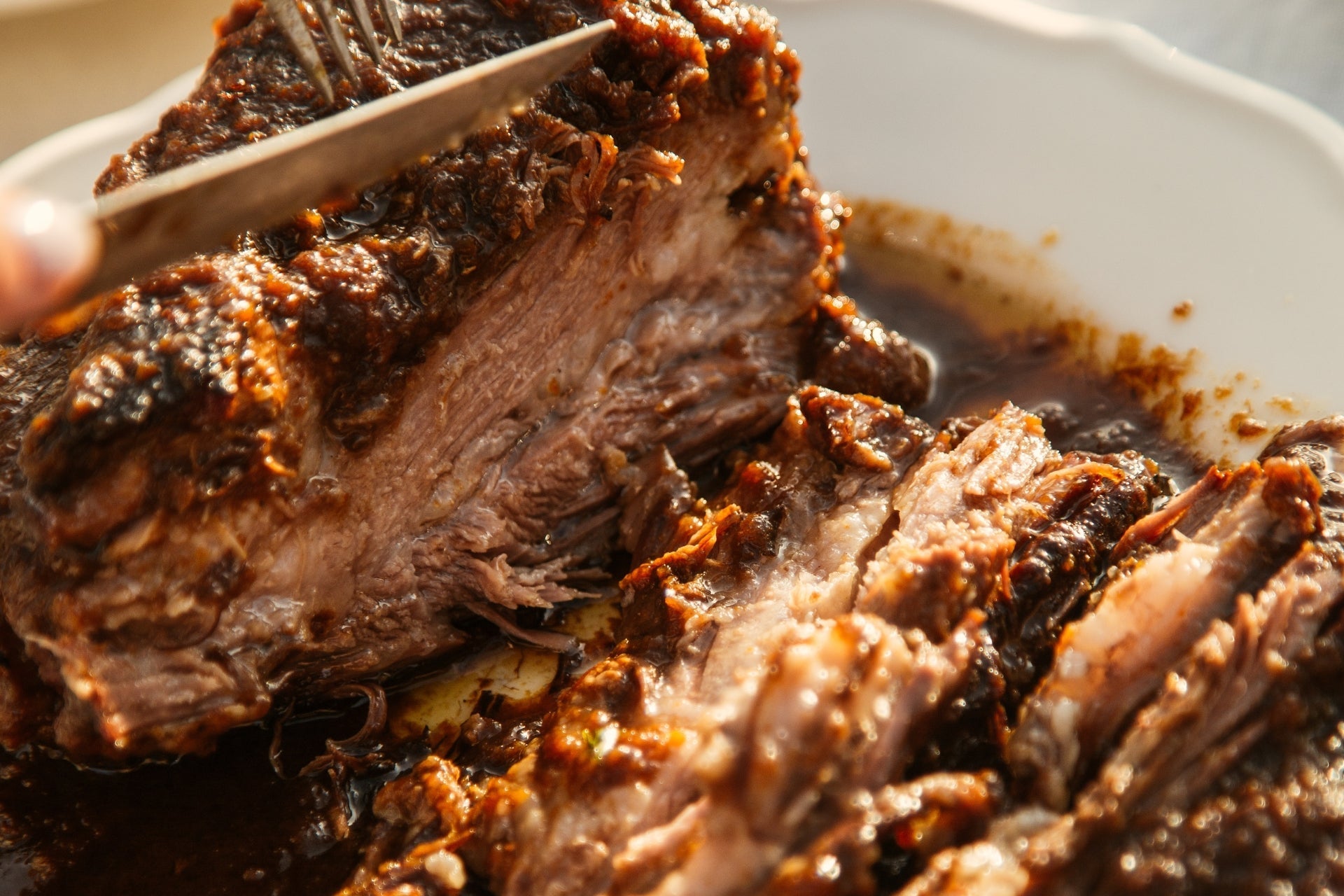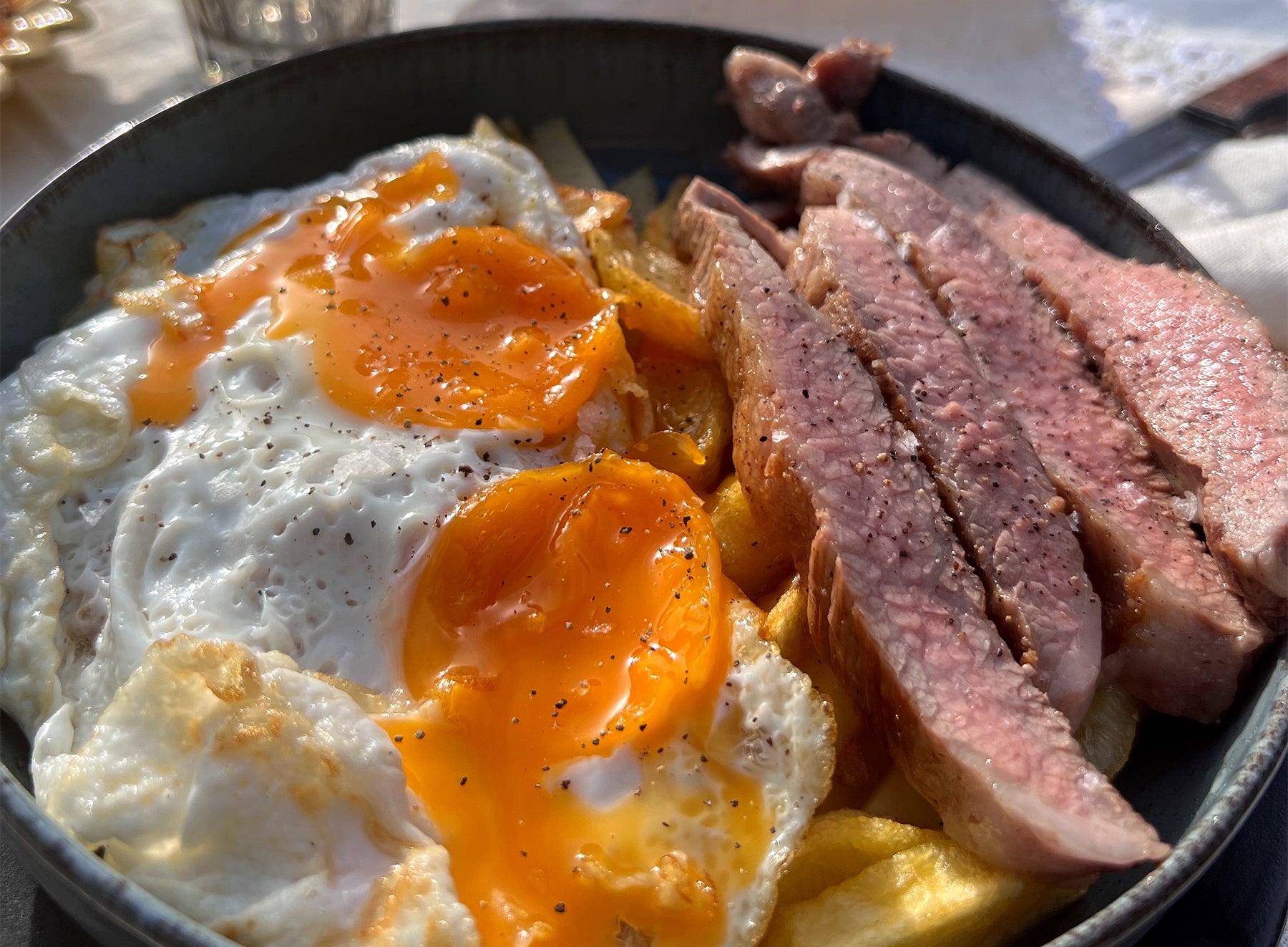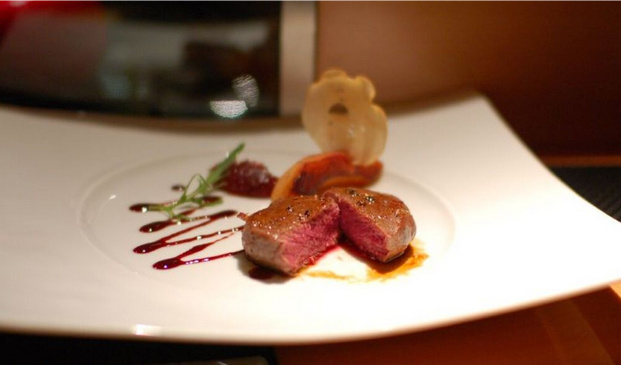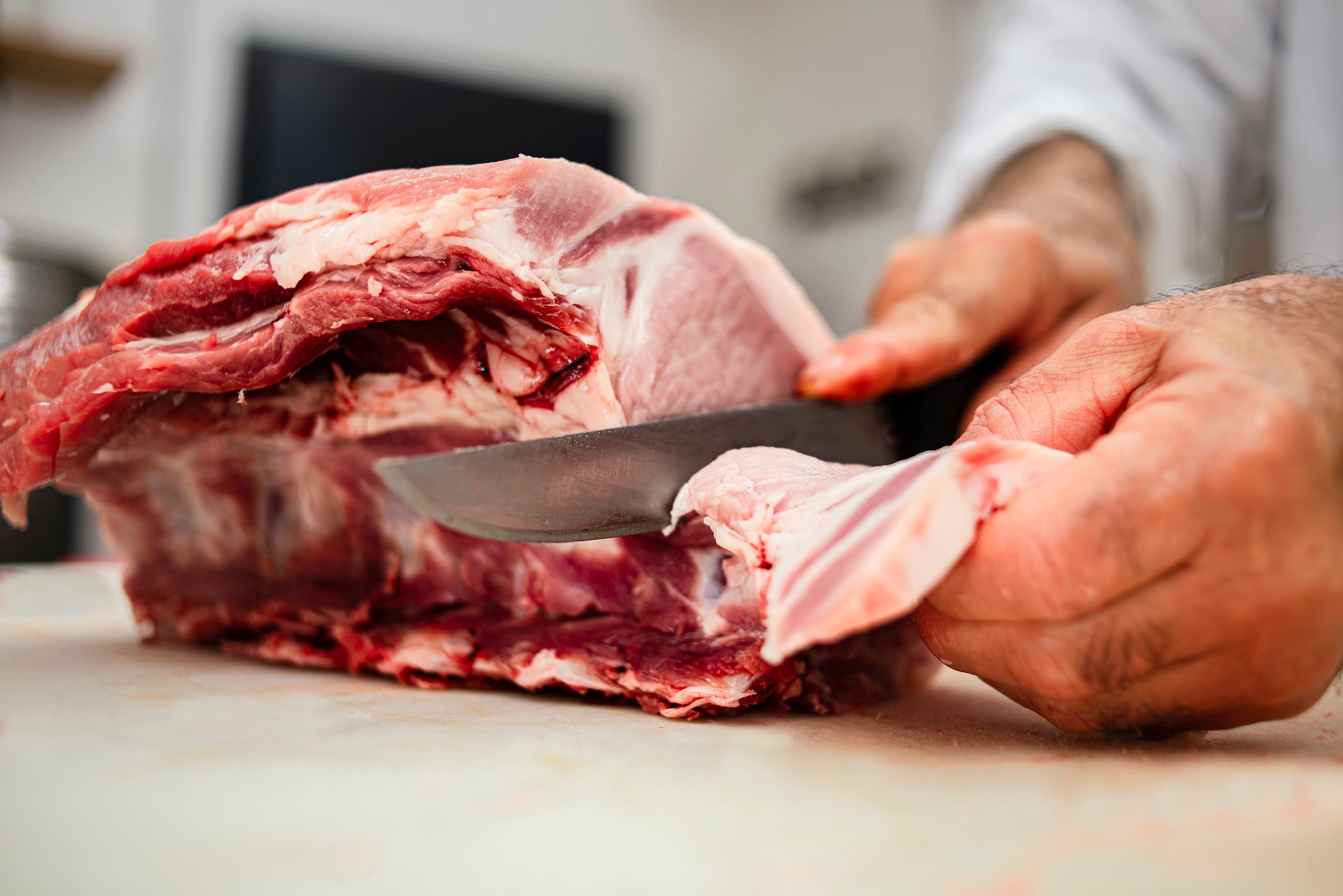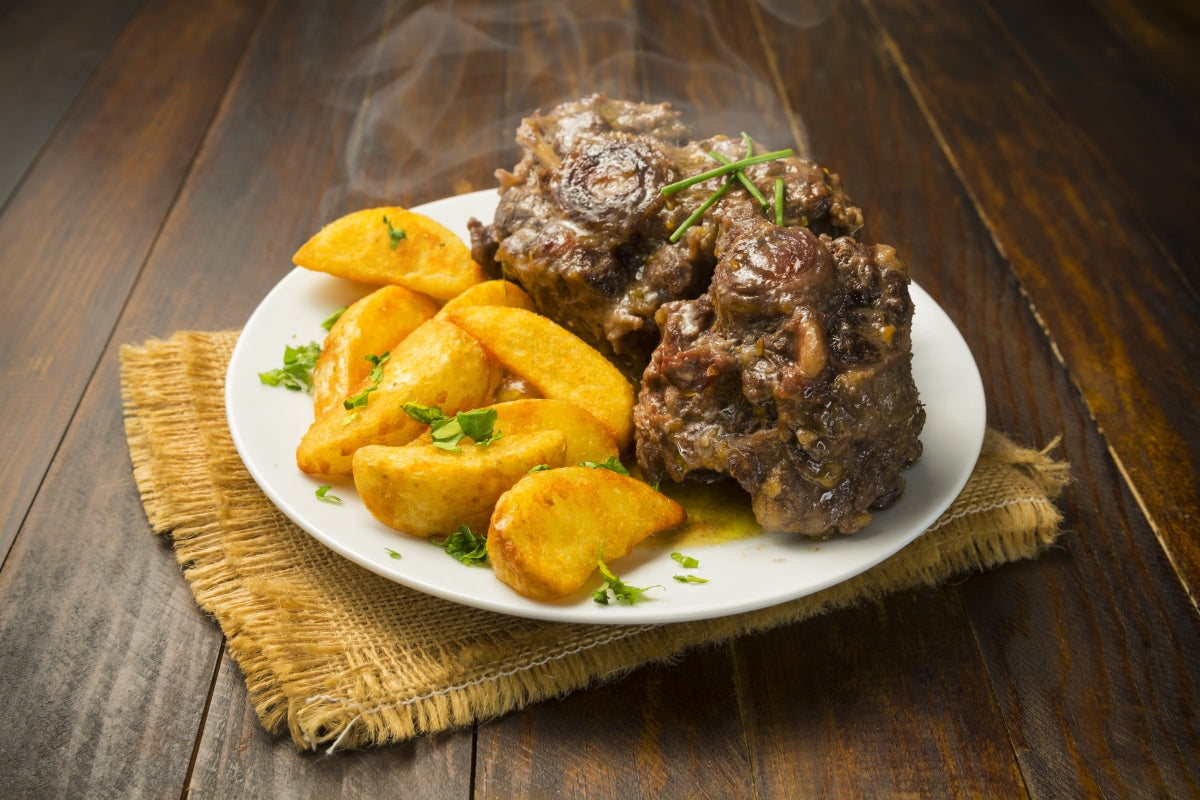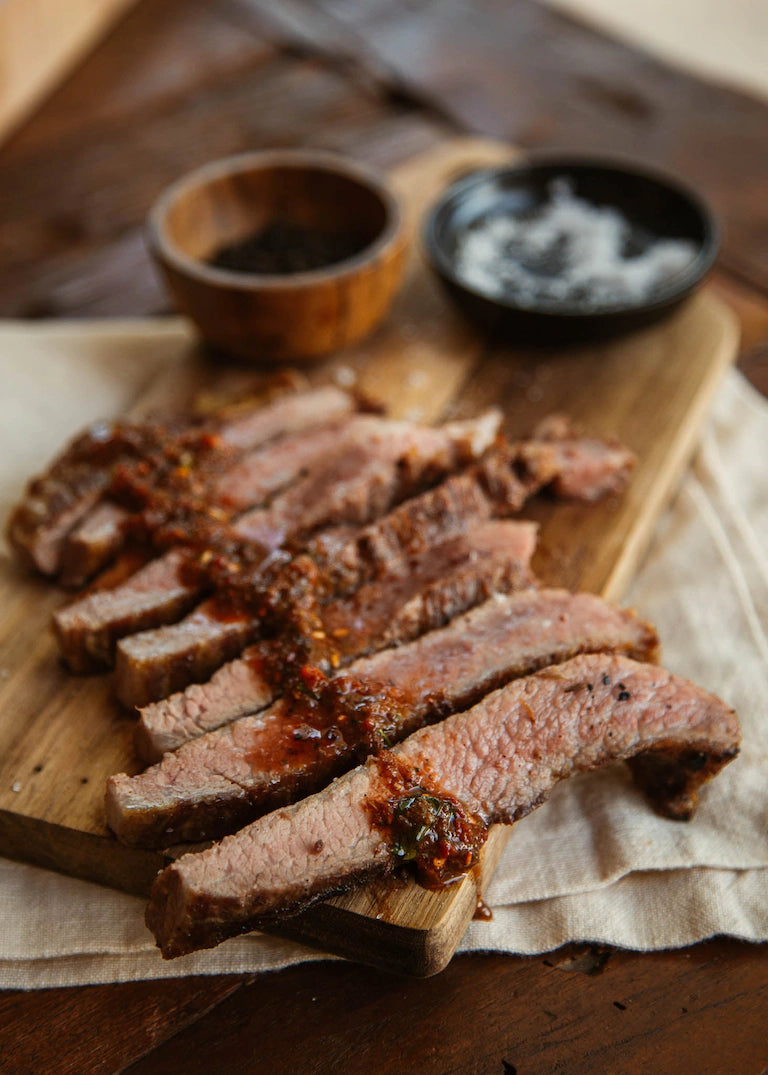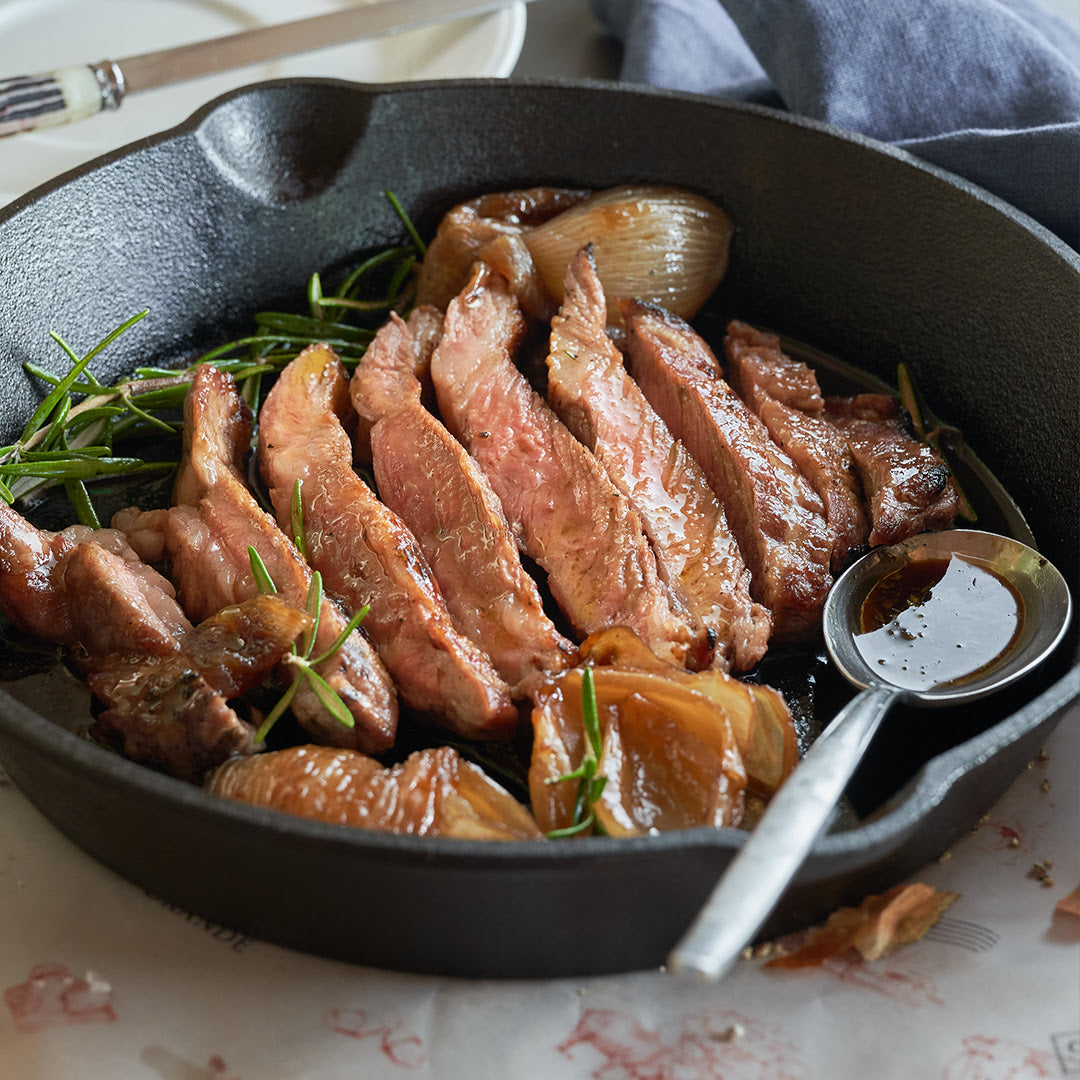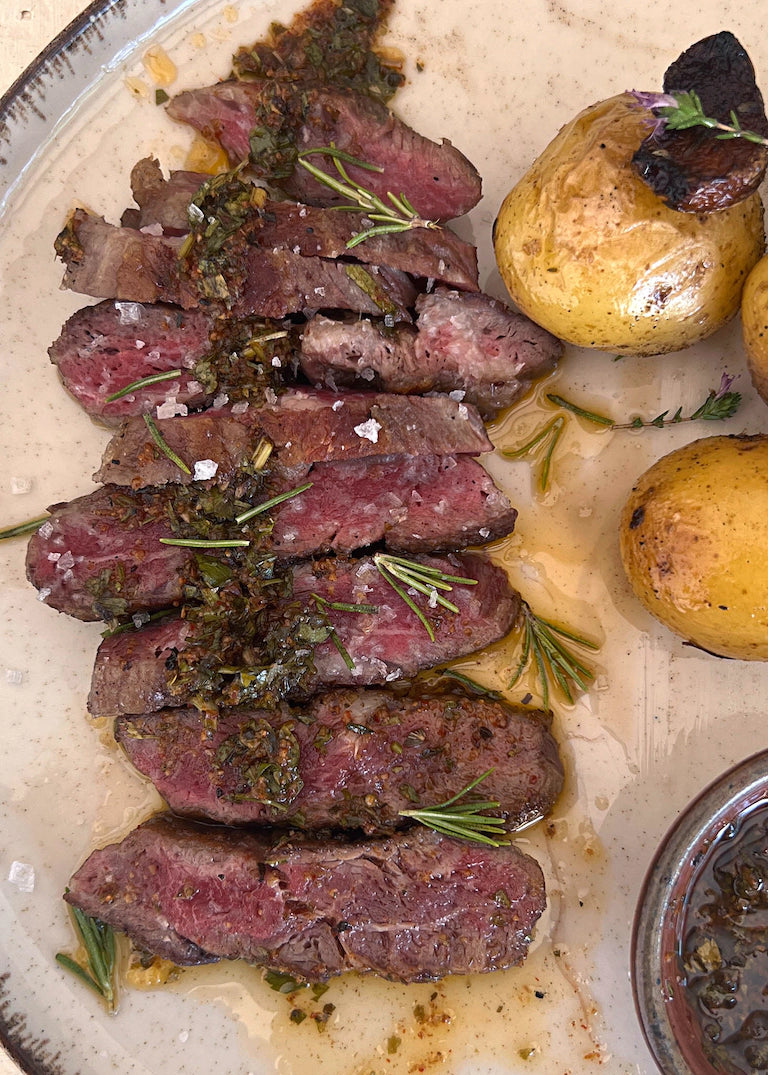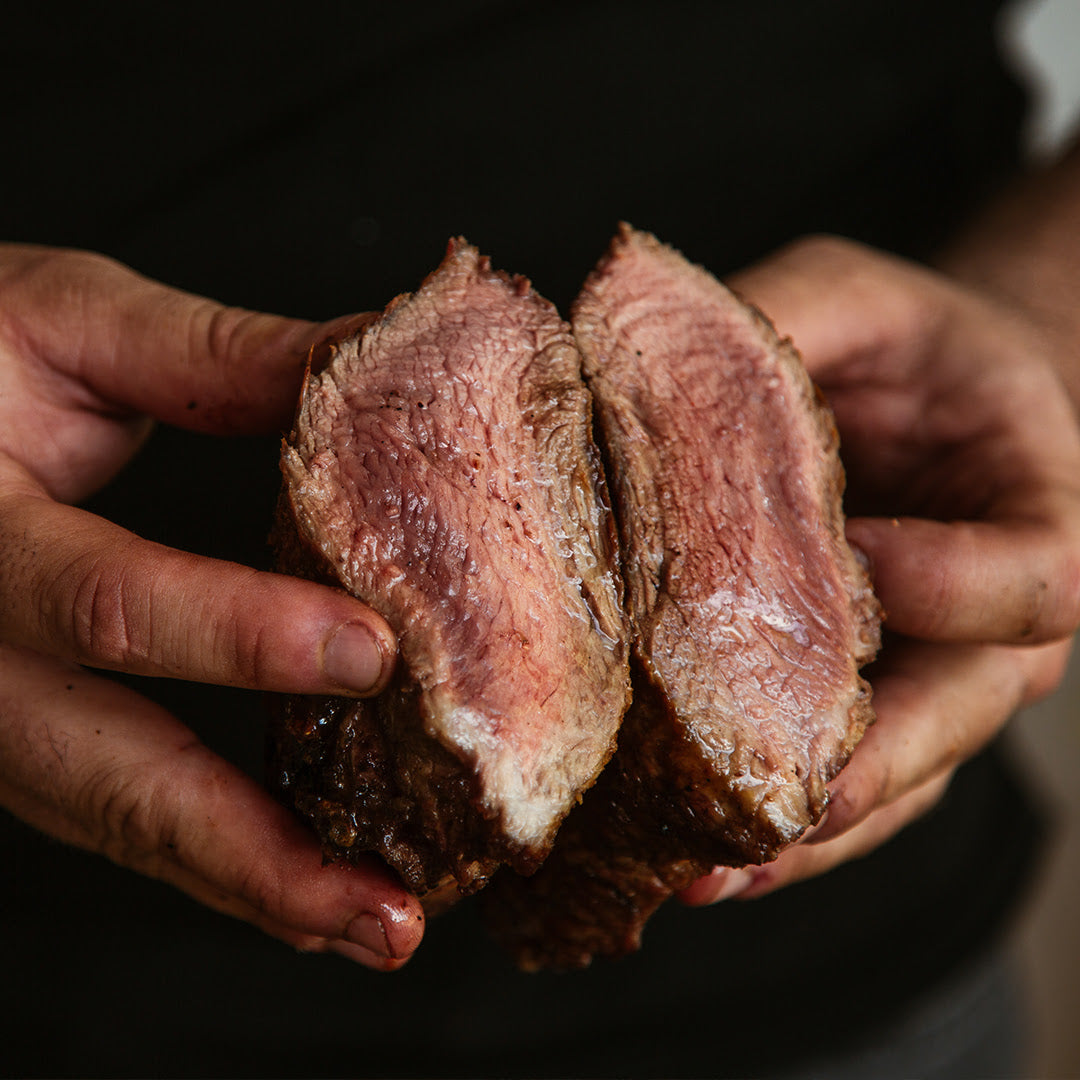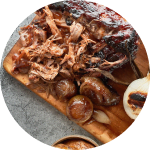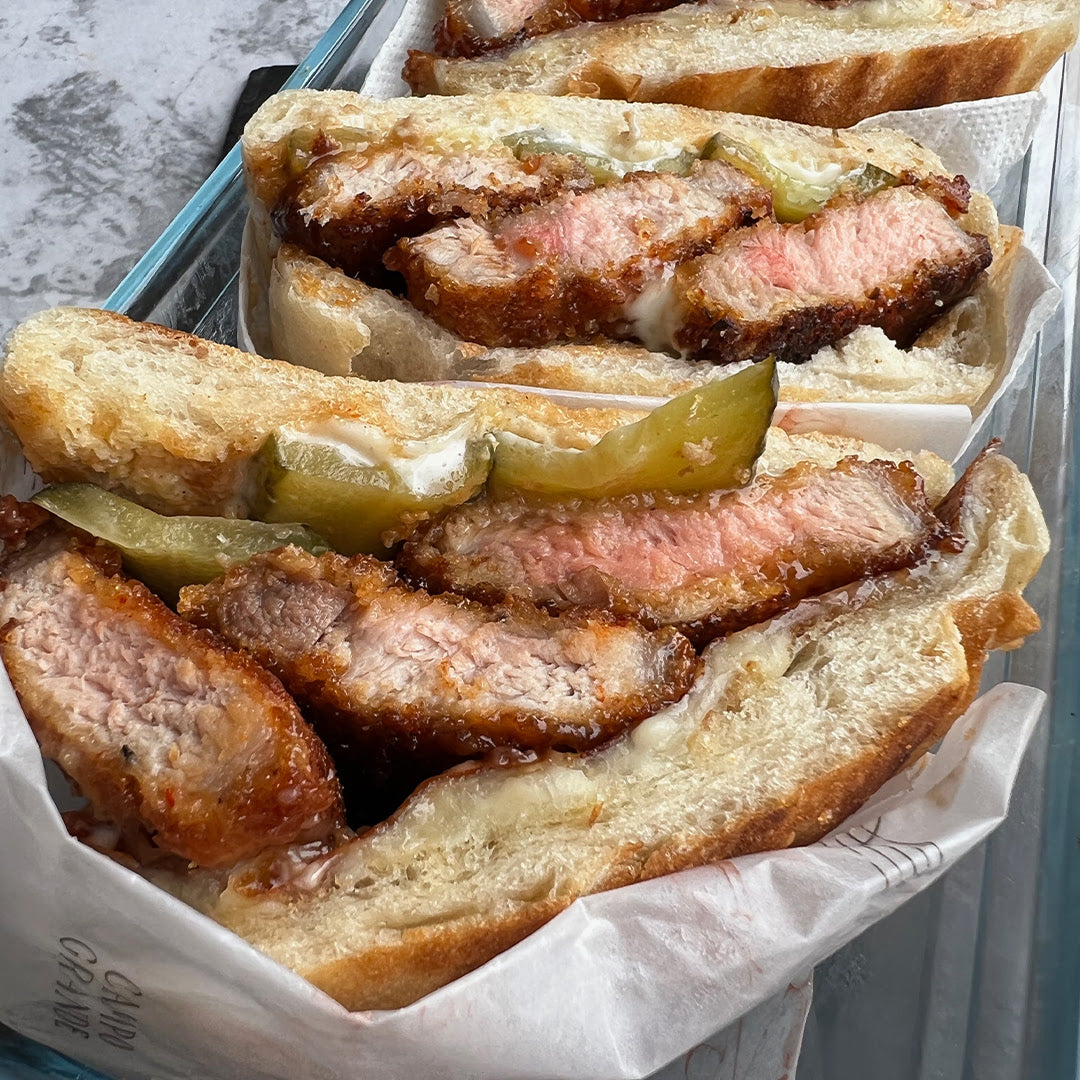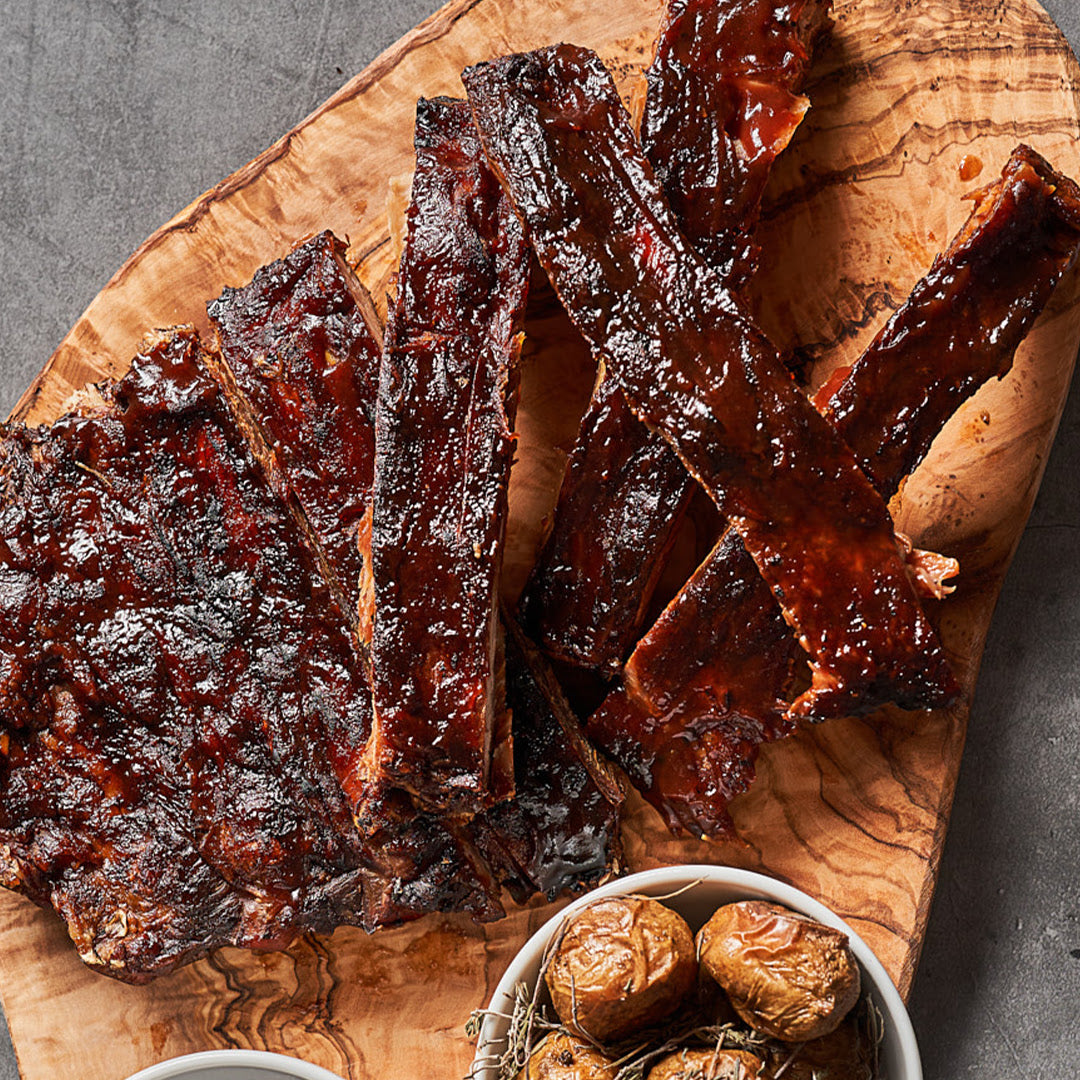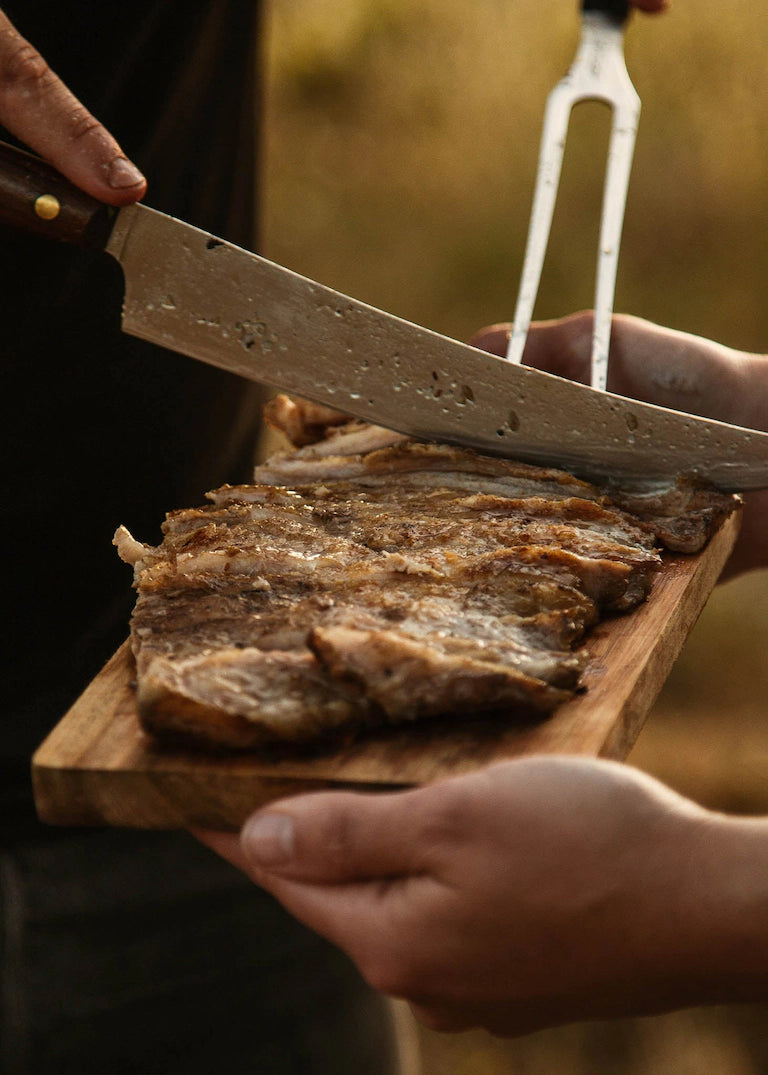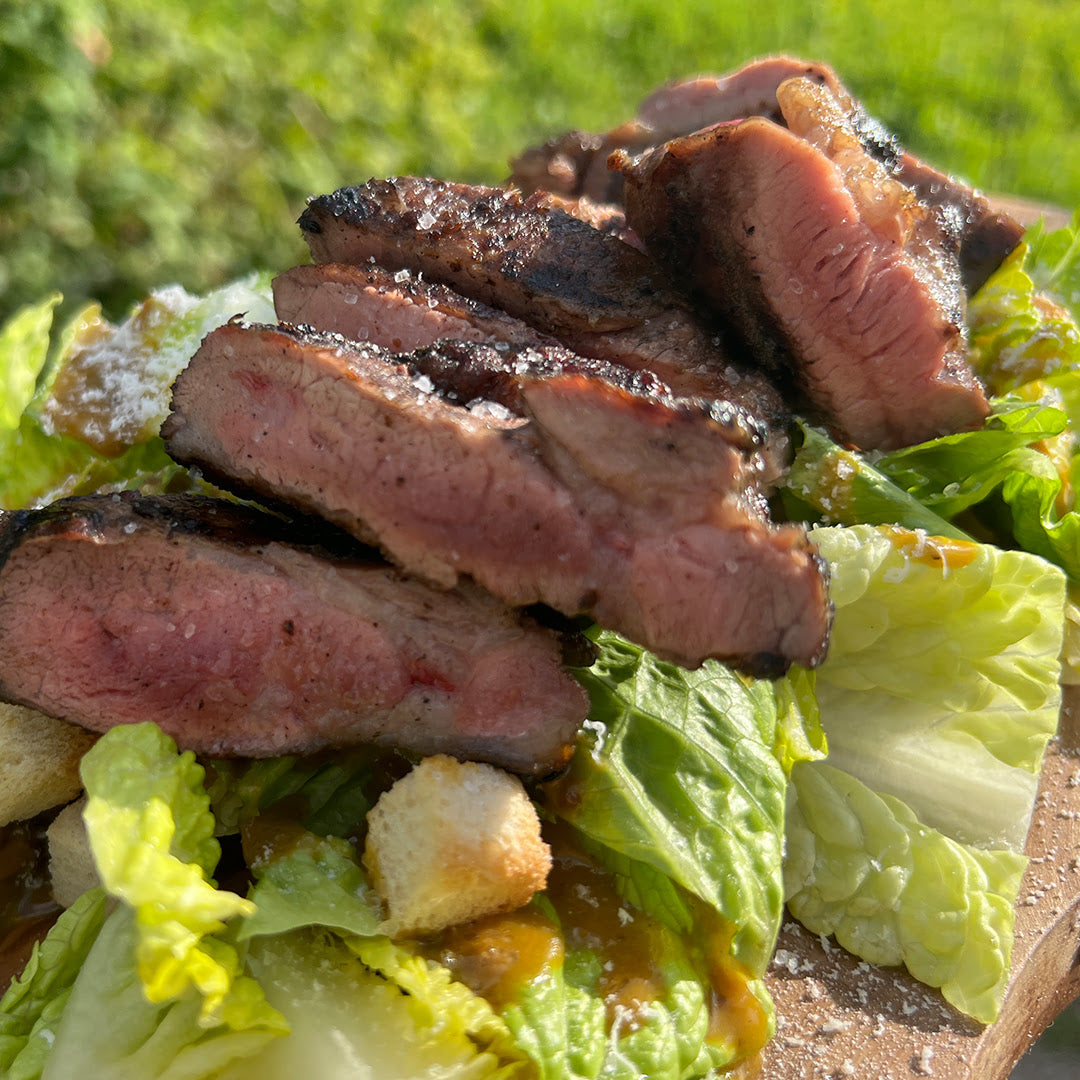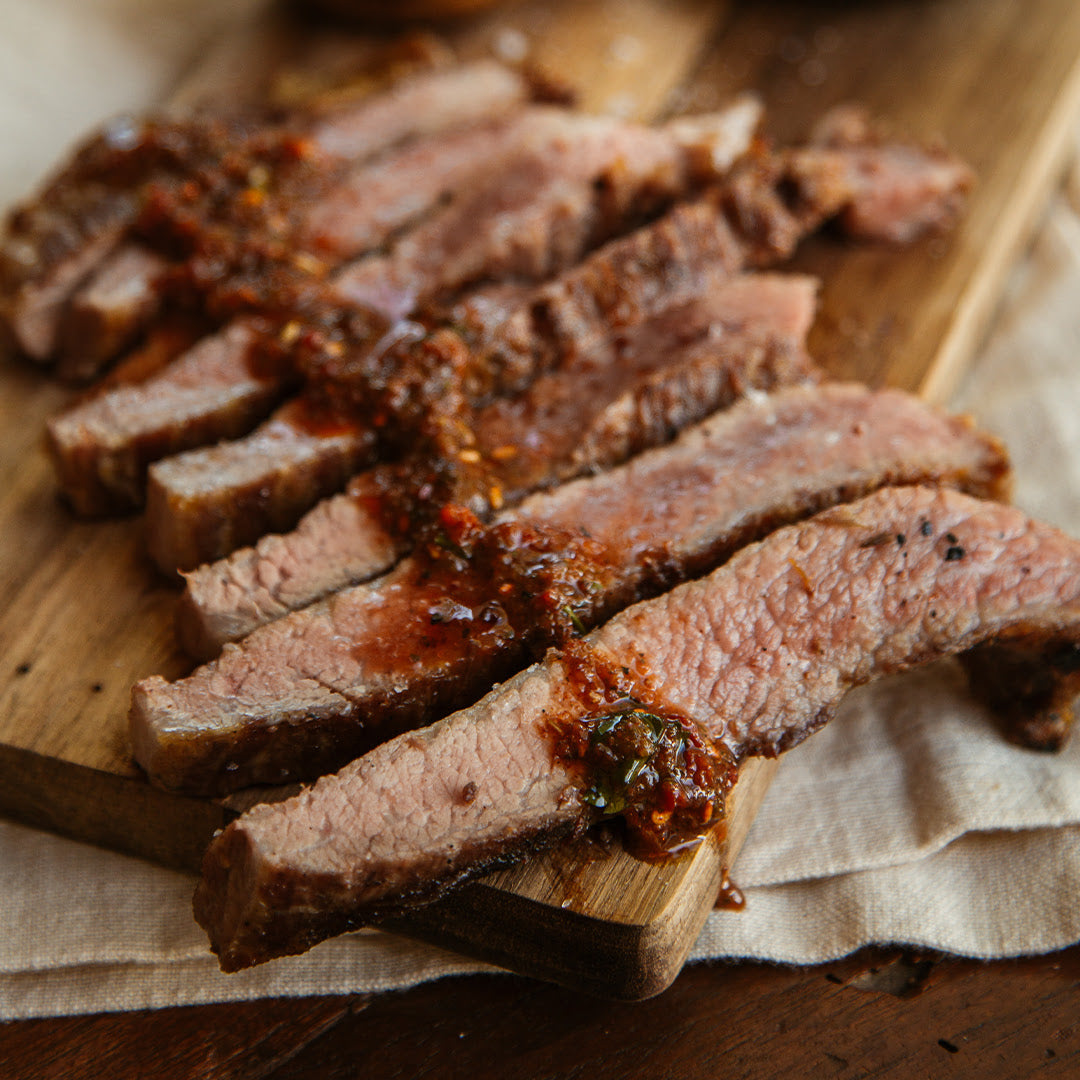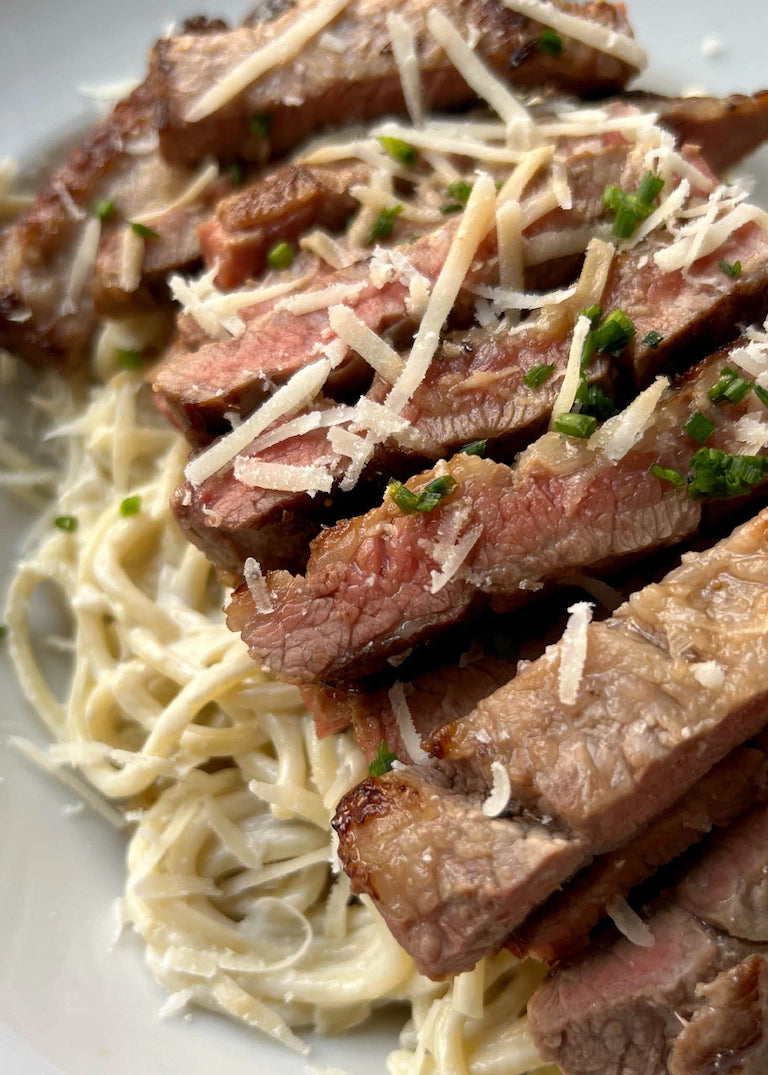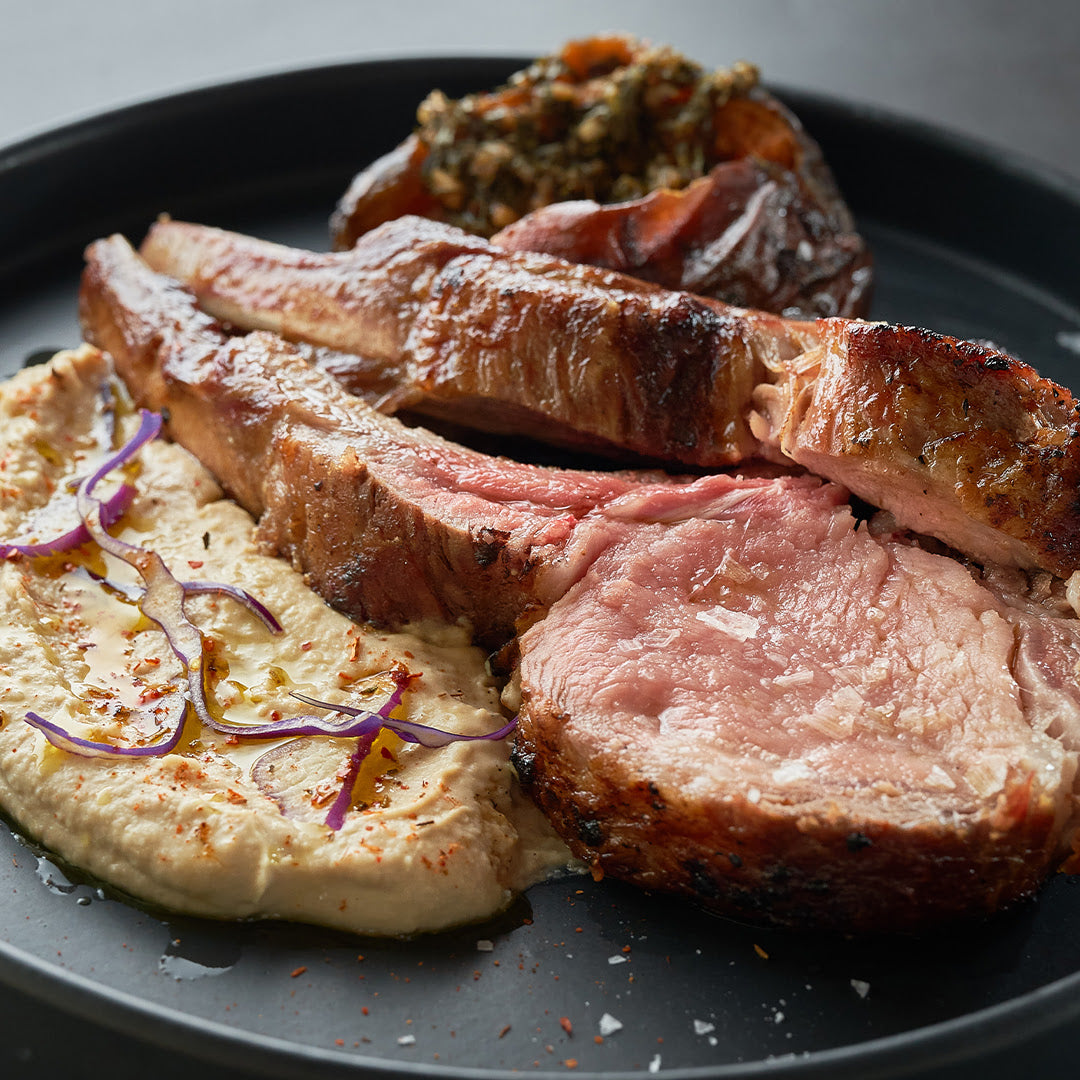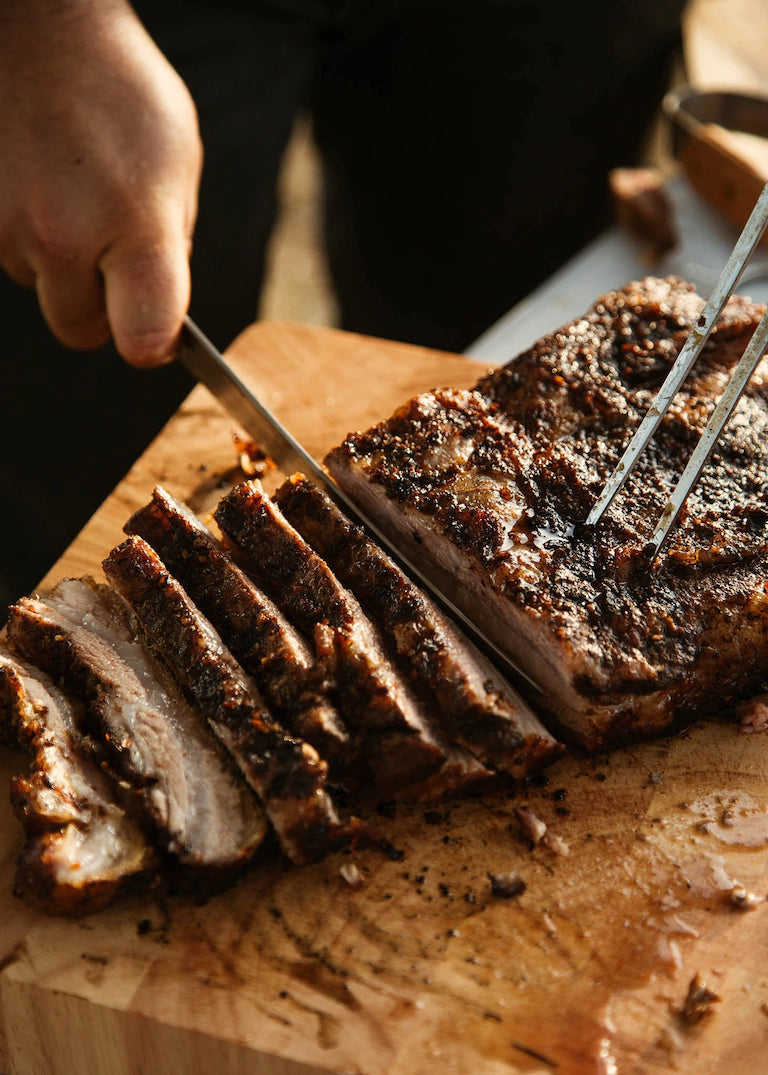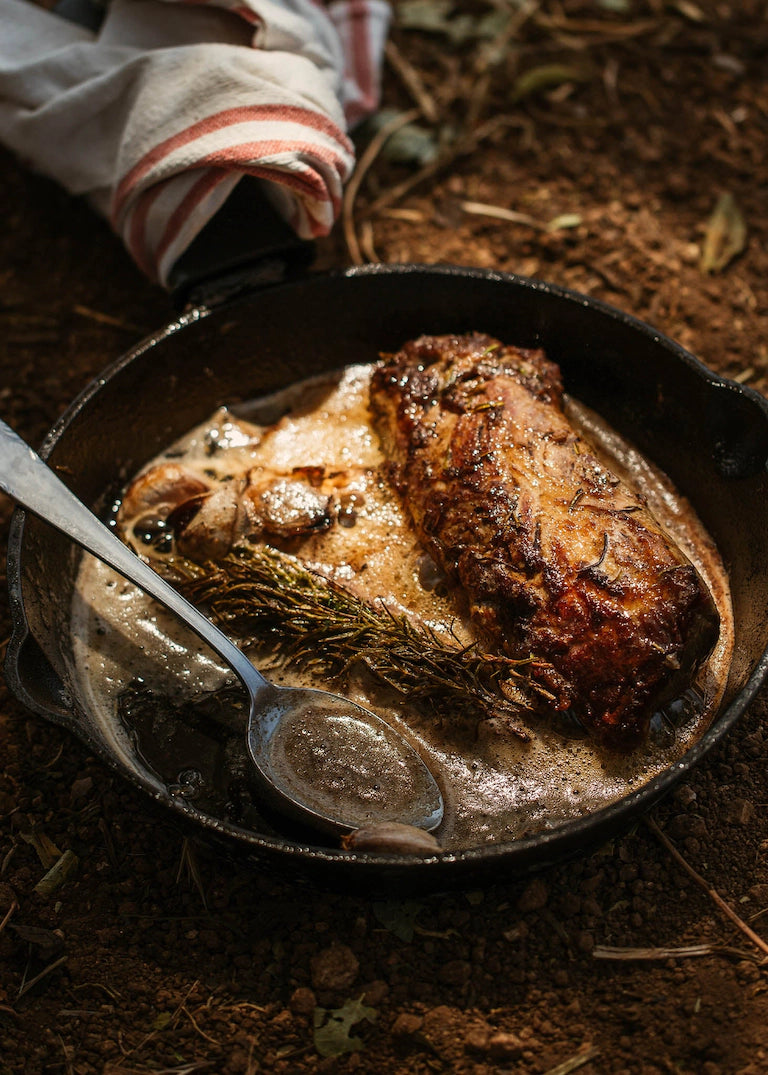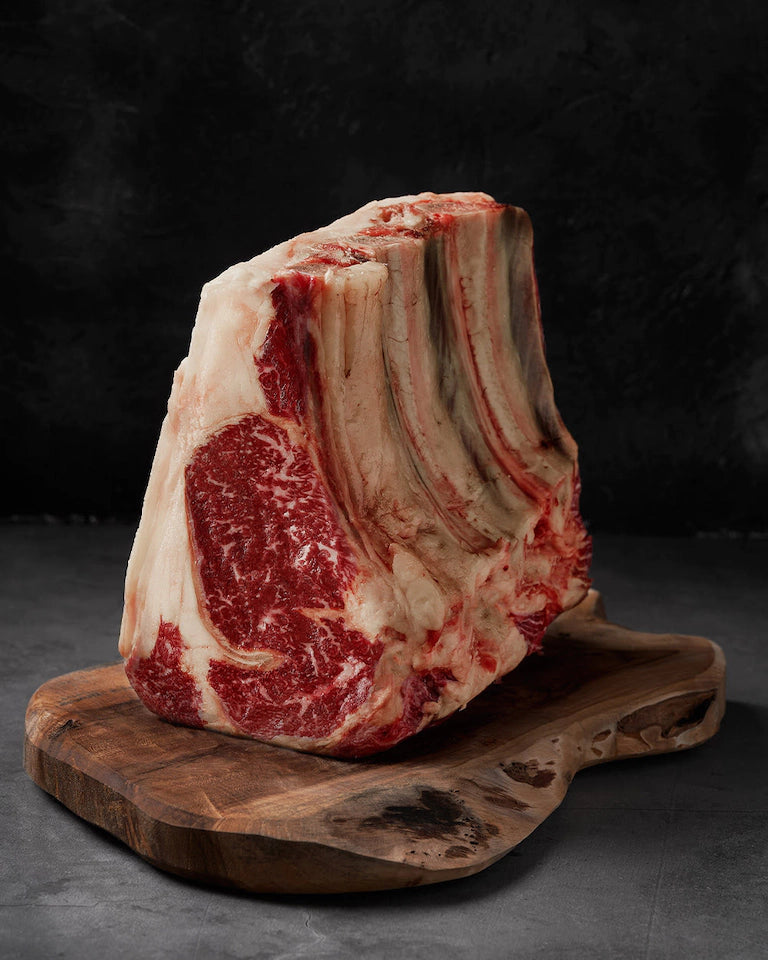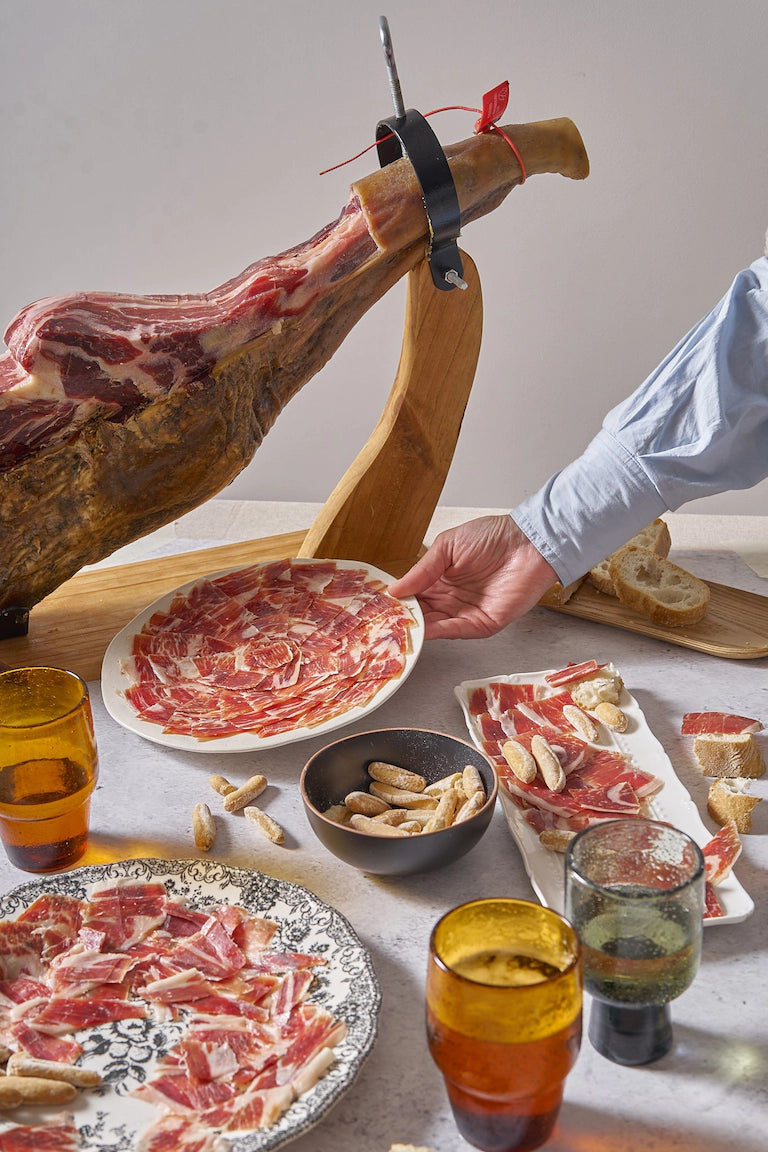
First time cooking Ibérico pork? Here’s our guide to getting the most out of your first Ibérico experience.
Ibérico Cuts
Secreto Ibérico

A highly marbled cut, secreto is the Spanish butcher’s best kept secret. It is located on the outside shoulder muscle and looks similar to a skirt steak, but with far more intramuscular fat.
Cook it: Sear in a hot skillet for 2-3 minutes on each side.
Our Top Picks:
Black Beans with Secreto Ibérico
Secreto Steak with Chimichurri & Crispy Potatoes
4-Rib Rack

Similar to prime rib, but with richer flavor and fat, the Ibérico rib rack is located on the upper ribs of the pig with the loin. The 4-rib rack is essentially the pork loin with the bones intact.
Cook it: For the whole rack, sear it on high heat and finish it in the oven at 350ºF (about 30 minute for every 1 pound of meat). Or, cut it into individual chops and cook for 4 minutes on each side on high heat.
Our Top Picks:
Grilled Rib Rack with Red Wine Sauce and Apples
Roasted Rack of Ibérico with Dijon-Rosemary Glaze
Hanging Rosemary Ribs with Asparagus
Presa Ibérica

Presa is an oval shaped cut that sits between the shoulder and the loin of the Ibérico pig. It is the ultimate boneless roast and works well cooked whole or sliced into thin cutlets or filets.
Cook it: Cook cutlets 2-3 minutes on each side in a screaming hot pan, or the whole piece in the oven at 145ºF for about 45 min to 1 hour.
Our Top Picks:
Presa Montaditos with Goat Cheese & Honey
Presa Ibérica with Mountain Rice
Spanish Burrito with Presa Ibérica & Mango
Pluma Ibérica


Pluma is taken from the neck end of the pork loin, just above the shoulder blade, and has a wing shape The name means “feather” because the muscle is long and thin with pointed ends.
Cook it: Grill over direct heat for 2-3 minutes on each side.
Our Top Pick:
Ooni Oven Pluma Pizza with Jamón Ibérico
Pluma with Pearl Onions & Miso Butter
Pluma Ibérica Sous Vide with Grilled Potatoes & Corn
Abanico Ibérico


Abanico is taken from the area around the ribs of the pig, and thus has varying shapes that produce unique textures when cooked. It is a thin piece and spreads out like a fan, which is why it is called abanico (fan in Spanish).
Cook it: Grill over direct heat for 2-3 minutes on each side.
Our Top Picks:
Abanico with Provolone & Cherry Tomatoes
Cuminy Ibérico Pork Stir-Fry with Chilies and Scallions
Ibérico Flank Steak

Also known as tira de manto, the Ibérico flank steak is like a thin pork belly but a bit leaner and with a satisfying chew.
Cook it: Marinate and grill over direct heat for 2-3 minutes on each side.
Our Top Picks:
Grilled Flank Steak Rolls with Jamón Ibérico and Pesto
Coppa

Also called mogote, the coppa is a round “money” cut from the upper collar of the pig.
Cook it: Rub, glaze, and smoke it. Can also cook like roast beef or pulled pork.
Our Top Picks:
Loaded Potatoes with Grilled Coppa Carnitas
Coppa Carnitas Sandwiches with Apple Slaw
Loin Roast

The “lomo” loin roast is a boneless cut with abundant marbling that keeps the meat juicy as it cooks.
Cook it: Roast it whole in the oven until it reaches 130ºF, cut into bite-size pieces for stews, or slice into filets and grill or sear 2-3 minutes on each side on high heat.
Our Top Picks:
Loin Roast with Garlic Butter Sauce
Loin Roast Sandwiches with Pesto and Red Pepper Mayo
Pork Loin Burger with Mike’s Hot Honey Sauce
St. Louis Ribs

Meatier ribs that come from the belly area of the hog, once the belly is removed. Flat and high in fat.
Cook it: Sear and cook in the oven or grill at 250ºF for at least 3 hours. Or sous vide at 100ºF for 8 hours.
Our Top Picks:
BBQ St. Louis Ribs with Potatoes & Onion Rings
Pork Fingers with Sweet & Sour Sauce
Porkbelly Secreto

Located on the underbelly of the pig, it is similar in flavor to secreto (also called secreto barriguera) with loads of intramuscular fat, but flatter and with a light pink coloring.
Cook it: Grill or sear in a hot skillet for 2-3 minutes on each side.
Our Top Picks:
Porkbelly Secreto and Chorizo Pizza
Jowl Secreto

Hidden close to the neck/jowells under a delicious layer of fat, the flat cut is superbly marbled and even juicier than pork belly. Also called the secreto de papada, it has a similar structure to bacon, meaning it’s made up of layers of skin, meat, and fat that seeps into the muscle.
Cook it: Grill or sear in a hot skillet for 2-3 minutes on each side.
Our Top Picks:
Cheddar Bacon Breakfast Bagel with Jowl Secreto
Jowl Secreto with Smashed Potatoes and Cranberry Salad
Skirt Steak

Also called manto bajo skirt, it sits under the tira de manto on the pig and is much like flank steak, but larger and tougher.
Cook it: Marinade to tenderize, and grill over high heat.
Our Top Picks:
Skit Steak and Jamón Sushi Rolls
Thick Porkbelly

Thick layers of fat on meat from the tender, flavor-laden Ibérico underbelly.
Cook it: Cure and smoke your own Ibérico-style bacon.
Our Top Picks:
Eggs Benedict with Crunchy Porkbelly
Tenderloin

Silky soft "solomillo" is exactly what this classic cut should taste like.
Cook it: Roast whole in the oven or slice into succulent medallions.
Our Top Picks:
Pork Tenderloin Medallions with Blue Cheese
Pork Tenderloin Bites with Brie and Strawberry
The Seasonings

We don’t call it the wagyu of pork for nothing…so treat it as such! Thus, we recommend you start off cooking your Ibérico cuts with nothing but salt and pepper, or very minimal seasoning. This will allow you to fully taste the unique flavors that are so characteristic of Ibérico pork— earthy, umami, and the nuttiest of fat.
Once you’ve mastered the S&P method, check out these sauces and seasonings:
The Grease
You won’t need additional oils to grease the pan when cooking Ibérico. Instead, render the fat by trimming a bit of fat from the cut and heating it up in a pan (it should begin to coat the pan) before adding the meat.
The Methods

Most Ibérico cuts are so well-marbled that they’re incredibly versatile when it comes time to cook dinner. With enough heat, the edges crisp up like bacon and the interior stays tender and juicy like a good steak.
When in doubt, a quick sear on high is perfect for most cuts. As a rule of thumb for medium-rare (the Spanish way), cook it for 1 to 1.5 minutes for every centimeter of thickness, which generally comes out to 2-3 minutes on each side.
Stovetop: A cast iron pan is ideal for getting extra crispy exteriors. Use high heat to keep it tender. (Pro Tip: Go the extra mile and season your cast iron with rendered Ibérico fat)
Grill: Charcoal, wood, and gas all work well with Ibérico and impart smoky flavors. Crank the heat to get those grill marks.
Oven: Set Ibérico cuts in a baking pan under the hot broiler in the top part of the oven, and cook until browned on the outside, flipping halfway through. You can also cook those slightly thicker cuts lower and slower, at 350ºF for 30 min.
Sous Vide: Check your sous vide machine to make the best decision about your cut, but one of our most loyal customers loves to cook his to 131ºF for about 2 hours.
The Temperature
In Spain, we recommend treating Ibérico as you would a wagyu steak and staying in the medium-rare territory: internal temp of 140-145ºF. Yes, a little pink is perfectly safe and it’s the best way to preserve the unique Iberian flavors and fats. Of course, Ibérico is good at any temp, so you’ll really can’t go wrong.
The Sides

The same philosophy goes for sides as it does for seasonings— keep it simple. You want neutral starches to soak up the fat or bitter veggies to add balance. These are our go-tos:
- Potatoes in any shape or form
- Good crusty bread
- Grilled peppers and onions
- Garlicky sautéed spinach
- Roasted corn
- Broccolini and broccoli rabe
- Sautéed mushrooms
- Braised kale or collard greens
- Cabbage slaw
- Fresh green salad
When in Doubt, Treat it Like Wagyu
Ibérico pork—because of how it’s bred and the way it's fed—has a highly-marbled beef-like texture, similar to wagyu beef. When in doubt, do exactly what you would do with a cut of premium wagyu or dry-aged beef. Treat it with care and respect and Ibérico will never disappoint.
